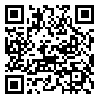دوره 5، شماره 3 - ( 5-1397 )
جلد 5 شماره 3 صفحات 9-2 |
برگشت به فهرست نسخه ها
Download citation:
BibTeX | RIS | EndNote | Medlars | ProCite | Reference Manager | RefWorks
Send citation to:



BibTeX | RIS | EndNote | Medlars | ProCite | Reference Manager | RefWorks
Send citation to:
Athari Z, Rostami Siahouei A, Hedayati F. Effect of Islamic-based Spiritual-religious Psychotherapy on Components of Health-oriented Lifestyle in Female University Students. Health Spiritual Med Ethics 2018; 5 (3) :2-9
URL: http://jhsme.muq.ac.ir/article-1-213-fa.html
URL: http://jhsme.muq.ac.ir/article-1-213-fa.html
Effect of Islamic-based Spiritual-religious Psychotherapy on Components of Health-oriented Lifestyle in Female University Students. Health, Spirituality and Medical Ethics. 1397; 5 (3) :2-9
چکیده: (4878 مشاهده)
Background and Objectives: Nowadays health-oriented lifestyle is the best way for prevention and having a healthy lifearound the world. Therefore it is necessary to identify and strengthen the factors that improve lifestyle. As a result, this study aimed to evaluate the effect of Islamic instructional-based spiritual-religious psychotherapy on health-oriented lifestyle in female students of Hormozgan University, Hormozgan, Iran..
Methods: This experimental pretest-posttest study with control group was performed on the statistical population consisting of all the female undergraduate students of Hormozgan University, Hormozgan, Iran in 2017. Thirty students were selected through random sampling method, followed by random assignment into the two groups and control. The participants of experiment group received spiritual-religious psychotherapy based on Islamic instructions. The Health-Promoting Lifestyle Profile II was used for all the data were analyzed by multivariate analysis of variance using SPSS-version 22.
Results: The results showed that spiritual-religious psychotherapy based on Islamic instruction has a significant impact on health-oriented lifestyle (F=-21.44, P<0.05). In addition, the psychotherapy significantly affected some components of the health-oriented lifestyle, such as exercise (F=12.01, P<0.05), health accountability (F=5.76, P<0.05), stress management (F=5.37, P<0.05), interpersonal support (F=6.59, P<0.05), and self-actualization (F=6.06, P<0.05). On the other hand, no significant effect was observed regarding the nutrition component (F=0.39, P>0.05).
Conclusion: According to the findings of this study, spiritual-religious psychotherapy based on Islamic instructions ca be recommended as an effective approach for improving health-oriented lifestyle in university students.
Methods: This experimental pretest-posttest study with control group was performed on the statistical population consisting of all the female undergraduate students of Hormozgan University, Hormozgan, Iran in 2017. Thirty students were selected through random sampling method, followed by random assignment into the two groups and control. The participants of experiment group received spiritual-religious psychotherapy based on Islamic instructions. The Health-Promoting Lifestyle Profile II was used for all the data were analyzed by multivariate analysis of variance using SPSS-version 22.
Results: The results showed that spiritual-religious psychotherapy based on Islamic instruction has a significant impact on health-oriented lifestyle (F=-21.44, P<0.05). In addition, the psychotherapy significantly affected some components of the health-oriented lifestyle, such as exercise (F=12.01, P<0.05), health accountability (F=5.76, P<0.05), stress management (F=5.37, P<0.05), interpersonal support (F=6.59, P<0.05), and self-actualization (F=6.06, P<0.05). On the other hand, no significant effect was observed regarding the nutrition component (F=0.39, P>0.05).
Conclusion: According to the findings of this study, spiritual-religious psychotherapy based on Islamic instructions ca be recommended as an effective approach for improving health-oriented lifestyle in university students.
| بازنشر اطلاعات | |
 |
این مقاله تحت شرایط Creative Commons Attribution-NonCommercial 4.0 International License قابل بازنشر است. |





